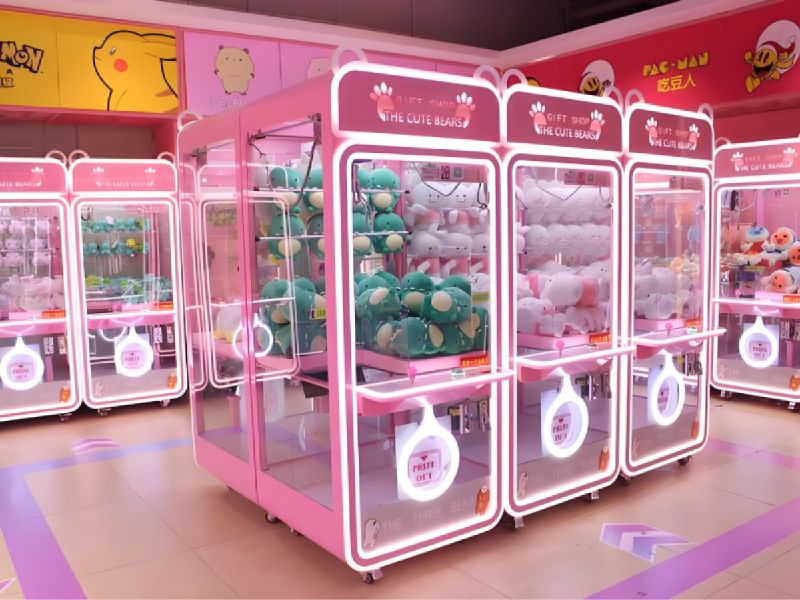Since the mid-20th century, arcade games have been a defining part of the global entertainment industry. Over the decades, they have expanded far beyond traditional arcades to become fixtures in malls, cinemas, theme parks, and other leisure venues. For investors and operators, arcade machines are no longer just game cabinets—they are strategic assets for attracting foot traffic, boosting dwell time, and driving revenue.
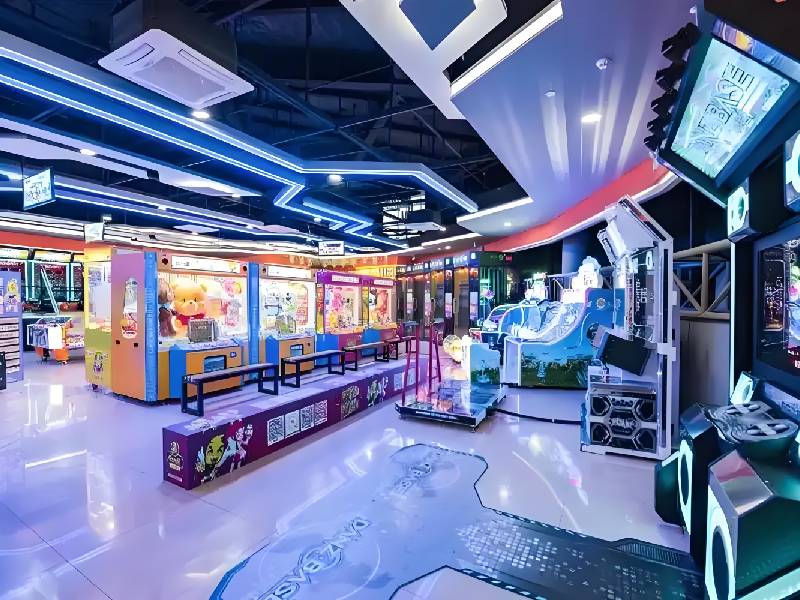
The challenge, however, is that the arcade machine landscape is highly diverse. Categories overlap, scenarios vary, and without a structured view, choosing the wrong mix can quickly dilute returns. That’s why in this guide, drawing on 16 years of industry experience, GM-Arcade takes a gameplay-first approach. We break down the market into seven gameplay categories and 24 representative arcade machines, giving you a clear framework to match the right cabinets with your business model.
Before diving into the details, here’s a concise overview of all categories. Use it as a quick map to find the machines that matter most to you, and to compare representative titles with their best deployment scenarios.
| Arcade Machine Types | Representative Arcade | Best Scenarios / Venues |
|---|---|---|
| Fighting & Versus |
|
|
| Shooting |
|
|
| Racing & Driving |
|
|
| Music & Rhythm |
|
|
| Sports |
|
|
| Claw & Casual |
|
|
| Retro & Pinball |
|
|
These gameplay categories provide a practical lens for evaluating arcade investments. With this overview in mind, let’s dive deeper into each type.
Type 1. Fighting & Versus Games
Fighting and versus games are one of the most iconic arcade gameplay categories. Their simple rules—control a character, fight an opponent within a time limit—make them easy to learn but hard to master. These cabinets test reflexes, execution, and strategy, while also creating a competitive atmosphere that draws spectators. For investors and operators, fighting arcades stand out because they generate repeat play, foster communities, and even support esports-style tournaments, making them a reliable anchor in large venues.
1. Street Fighter
As the pioneer of fighting arcades, Street Fighter not only set the fundamental versus rules but also introduced combo systems and unique character skills, becoming a benchmark for later fighting games. Its arrival helped ignite a global arcade boom and served as the gateway title for countless players.
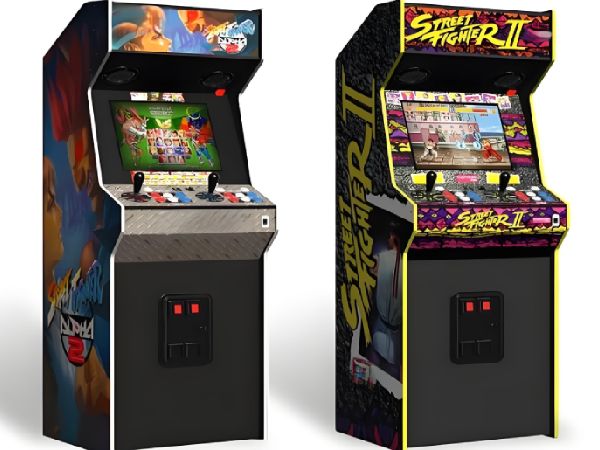
2. The King of Fighters
The King of Fighters is known for its large roster and deep combo systems. It’s 3‑on‑3 team format adds tactical depth and boosts player retention. As a 1990s evergreen, it maintains a massive global fan base and remains central to many arcade lineups.
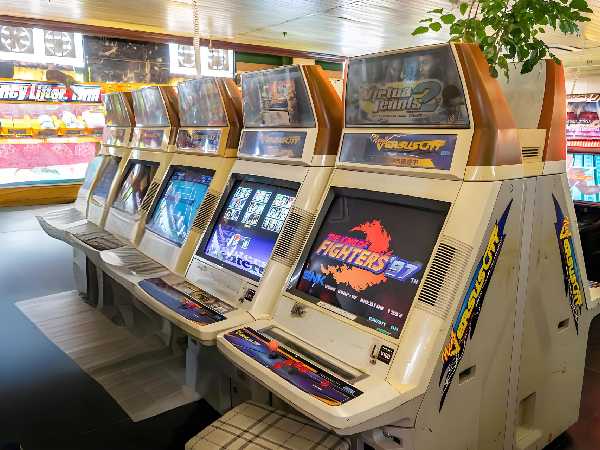
3. Tekken
Tekken utilizes 3D visuals and three-dimensional movement, delivering a more realistic impact and animation. Compared with traditional 2D fighters, sidesteps and nuanced guard mechanics add strategic layers, making it a milestone in the evolution of fighting arcades.
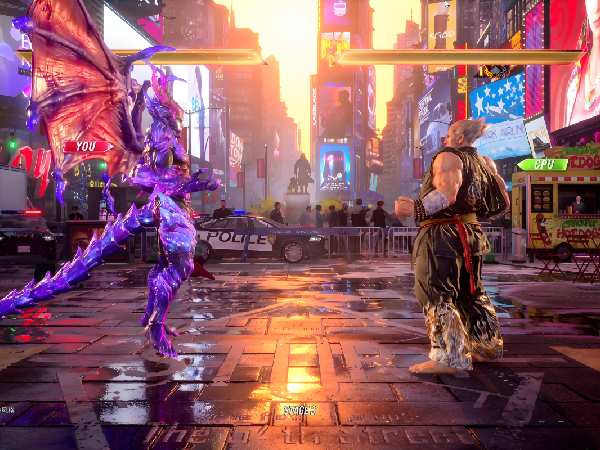
Type 2. Racing & Driving Games
Racing and driving cabinets are among the most immersive arcade categories, thanks to their realistic steering wheels, pedals, and shifters. They challenge players’ reaction time and driving skills, while delivering strong visual and physical feedback. For operators, racing games are reliable revenue drivers because they appeal to a wide demographic—families, casual players, and competitive gamers alike—and their large, eye-catching setups make them natural centerpieces in malls, fun zones, and entertainment centers.
4. Daytona USA
Daytona USA is famous for smooth visuals and thrilling track design. Players experience tight, high-energy races across varied courses. With fast pacing and strong competitive tension, it has become a staple racing cabinet in many large arcades.
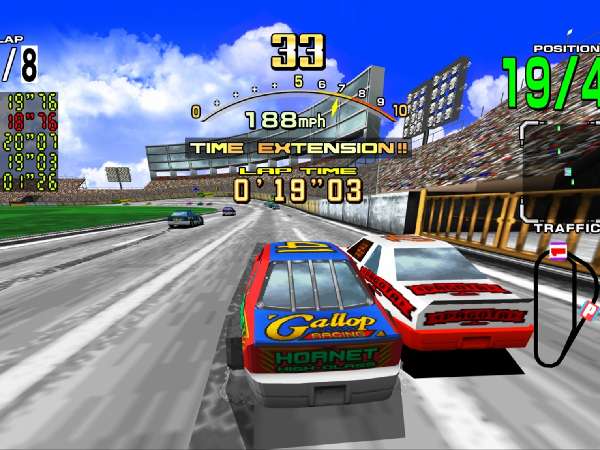
5. Mario Kart Arcade GP
Mario Kart Arcade GP attracts families and casual players with cartoon characters and rich power-ups. You not only fight for speed but also use items to disrupt rivals, which keeps each race lively and unpredictable. Its relaxed, social feel makes it ideal for family play and friend gatherings.
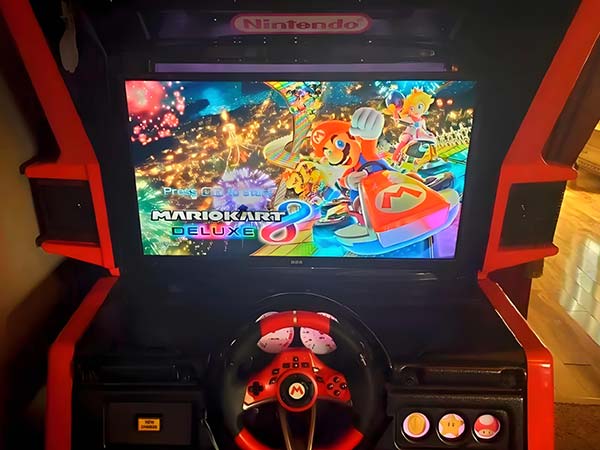
6. Initial D Arcade Stage
Initial D Arcade Stage faithfully recreates mountain drifting from the classic anime. Players enjoy thrilling high‑speed drifts through tight corners. With a highly engaging story mode and convincing handling, it is loved by anime fans and racing enthusiasts and is often a top choice for younger players.
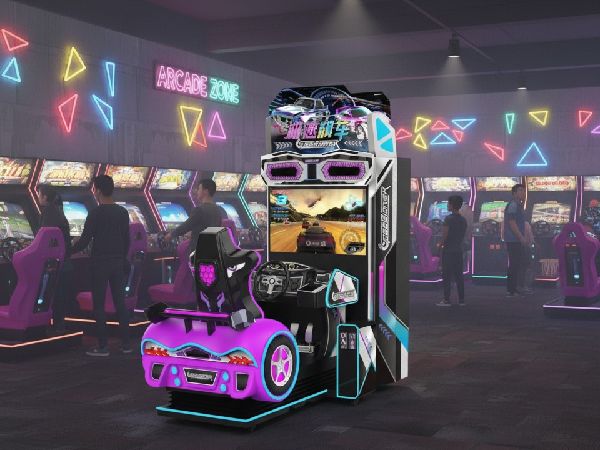
7. Motorcycle Racing Machine
Motorcycle racing machines let the cabinet body tilt as you lean through turns, delivering a more lifelike riding feel. Compared with standard racers, the physical interaction is stronger and more eye‑catching, drawing players who enjoy fresh experiences. Its intuitive controls also help beginners get started quickly.
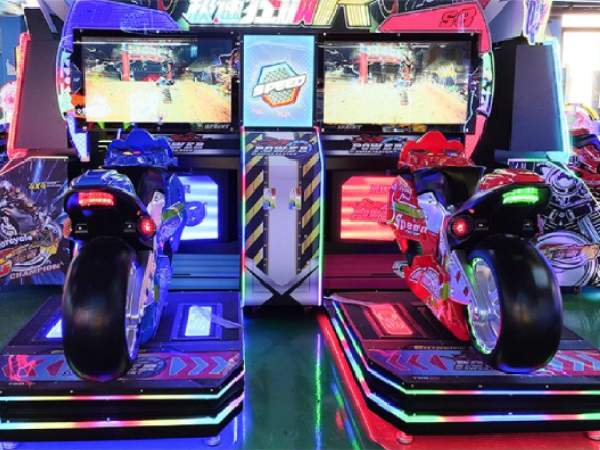
Type 3. Music & Rhythm Games
Music and rhythm cabinets blend music, visuals, and physical interaction. Players tap, dance, or perform to the beat, creating a strong sense of immersion. Beyond pure entertainment, these machines work as “instant atmosphere igniters,” boosting energy in youth hubs, malls, and family entertainment centers. For investors, music games are valuable because they attract diverse age groups, encourage repeat play, and often become social hotspots that amplify venue traffic.
8. Dance Dance Revolution
DDR asks players to step on directional arrows to the beat and remains the most representative dance arcade. It tests reflexes and rhythm while also offering a light workout. Thanks to its intuitive controls, it has become a global staple in arcades.
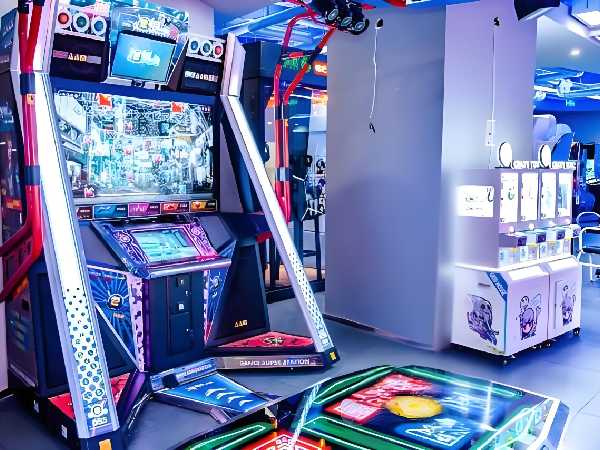
9. Taiko no Tatsujin
Taiko no Tatsujin simulates drumming: you use sticks to hit a large drum to the music. It is simple yet fun, and perfect for families and friends to play together. With cute visuals and a rich song library, it is particularly popular across Asian markets.
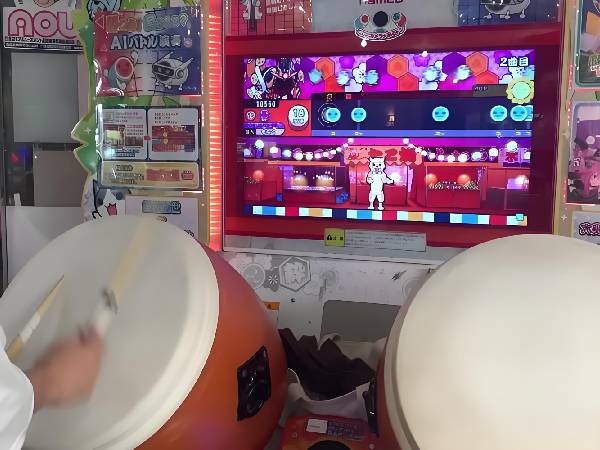
10. Guitar Hero Arcade
Guitar Hero Arcade lets players hold a guitar‑shaped controller and perform rock or pop tracks in rhythm. The strong immersion and stage‑like feel make it a magnet for music lovers, and it often becomes a high‑engagement centerpiece in venues.
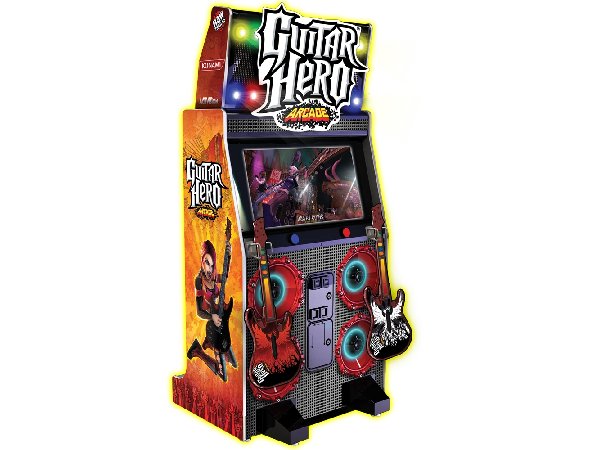
11. Beatmania
Beatmania focuses on DJ‑style play with a keyboard‑and‑turntable combo. It emphasizes technique and speed more than many rhythm games, appealing to core players. Its unique inputs and higher skill ceiling made it a classic representative of the genre.
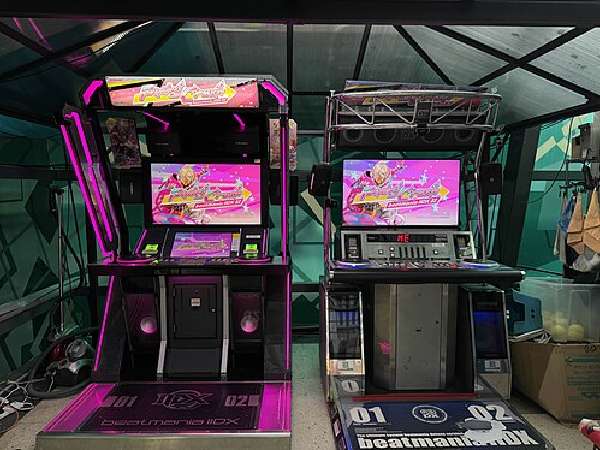
Type 4. Sports Games
Sports arcade machines simulate real-life activities in a simple, interactive way. Players shoot, punch, or strike to compete under straightforward rules that are easy for all ages to grasp. For operators, these cabinets are valuable because they combine light fitness, social interaction, and strong spectator appeal—factors that help keep venues lively and engaging. They are particularly popular in malls, bars, cafés, and family entertainment centers.
12. Basketball Arcade Machine
Basketball shooting machines simulate real shooting. Within a time limit, you try to make as many baskets as possible. The rules are simple and the tempo is tight, which suits quick competition. Strong spectator appeal also makes it a traffic driver for malls and arcades.
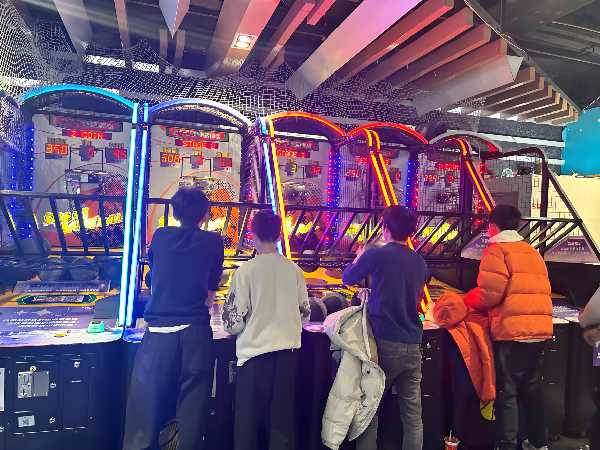
13. Table Soccer
Table soccer uses control rods to move players and shoot the ball. It is highly interactive and works well for both head-to-head and team play, quickly energizing social spaces. It is particularly suitable for bars and cafés.

14. Air Hockey
Air hockey uses airflow to help the puck glide quickly across the table. Players strike the puck to score in the opponent’s goal. Fast speed and strong collision feedback create intense thrills. Clear, simple rules make it a favorite among youth and families.
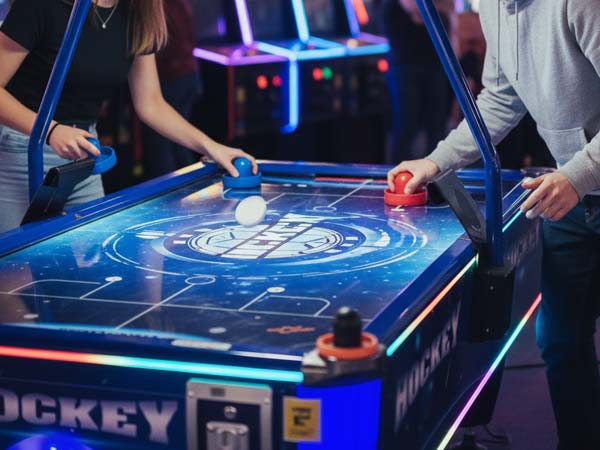
15. Boxing Machine
Boxing arcade machines measure punching power to score, testing both explosiveness and accuracy. With just one punch, players see their score and ranking, which makes the experience highly watchable and engaging. It is a common choice for stress release and social play in large malls and entertainment venues.
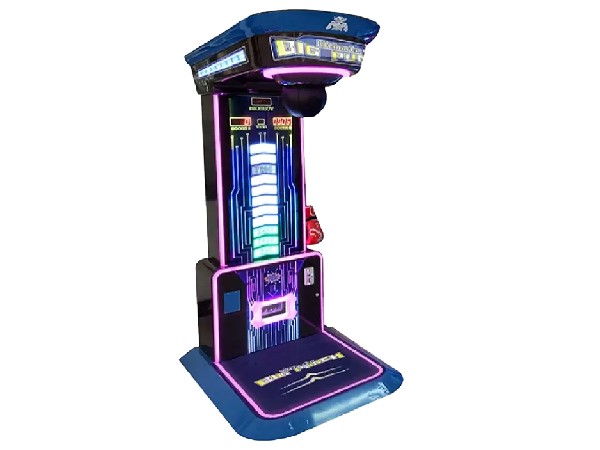
Type 5. Claw Machines & Casual Games
Claw and casual arcade machines center on fun, accessibility, and repeat play. They don’t require complex skills—players simply try their luck or complete a mini challenge for prizes—yet they deliver strong stickiness by encouraging multiple attempts. For operators, these cabinets are proven ROI generators: low barriers attract players of all ages, while flexible prize setups make them easy to adapt to different venues. That’s why they are staples in malls, cinemas, restaurants, and other high-traffic areas.
16. Claw Machines
Players control a mechanical claw to pick up dolls, toys, or gifts. Although the operation looks simple, skill and a touch of luck boost success rates, which keeps players trying again and again. As the most common casual arcade machines, claw cabinets are everywhere in malls and entertainment centers. There are many subtypes; if you require a more detailed breakdown, we can provide it.
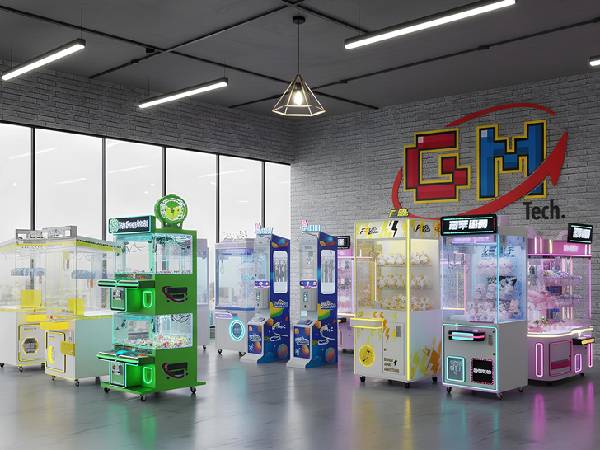
17. Redemption Machines
Redemption machines combine mini games—such as coin drops, wheels, or shooting—with a prize exchange mechanism. Players earn points through play and redeem them for rewards. Because prizes are flexible and can be adjusted, these machines are very common in family entertainment centers and arcades.
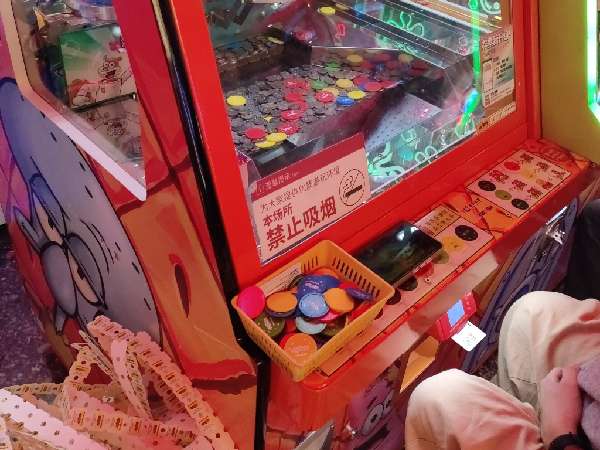
Type 6. Shooting Games
Shooting arcade machines immerse players in fast-paced, reflex-driven gameplay using light guns or dedicated controllers. Players aim, fire, and reload while advancing through stages under time or health pressure. For operators, shooting cabinets are valuable because they combine high engagement, repeat play, and strong spectator appeal. Their cinematic visuals and cooperative modes make them standout attractions in arcades, entertainment plazas, and theme parks.
18. Time Crisis
Time Crisis utilizes a foot pedal, allowing players to switch between cover and shooting, thereby balancing survival and damage output. Strict timers and segmented stages push fast decisions under pressure. Clear hit feedback and boss battles significantly enhance replay value.
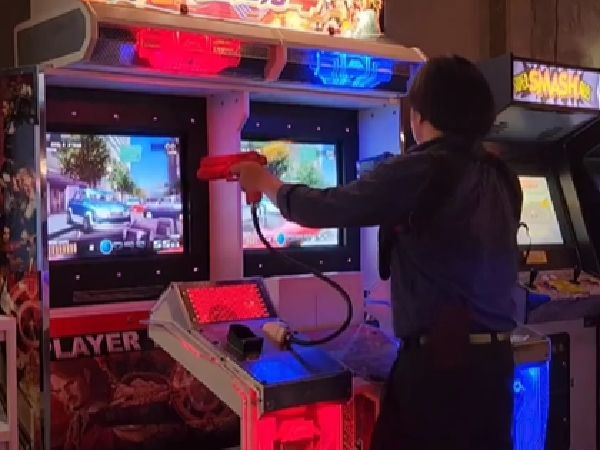
19. House of the Dead
House of the Dead creates pressure with hordes of undead and dark, eerie scenes. Players must chain weak‑point hits to clear rooms efficiently. Branching routes and part‑based damage add depth and replayability. Story sequences and large‑scale boss fights deepen immersion and narrative drive.
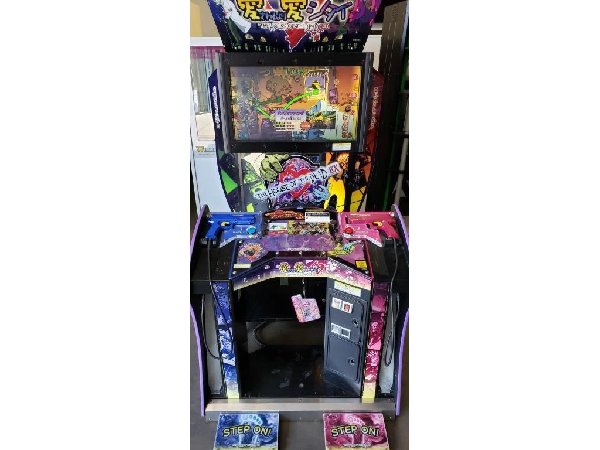
20. Terminator Salvation
Terminator Salvation features heavy‑caliber weapons and armored mechanical enemies. Under suppressive fire, you must reload and reposition in time. With cover mechanics and sustained‑fire design, the game tests your pacing across movement, aim, and resource management. Film‑level scenes and impactful sound recreate a sci‑fi war atmosphere that attracts fans of hardcore shooters.
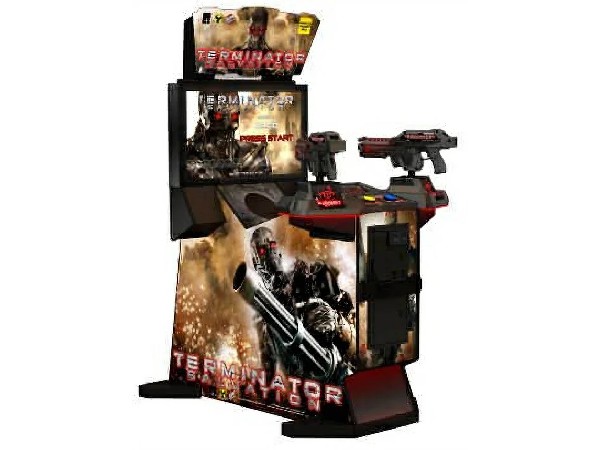
Type 7. Retro & Pinball Games
Retro and pinball arcade machines appeal to both nostalgia and novelty. Retro titles bring back the pixel-style charm of early arcades, while pinball offers a unique, mechanical and physics-based gameplay that still feels fresh today. For operators, these cabinets have twofold value: they attract older players seeking memories and introduce younger audiences to classic arcade culture. As a result, they work especially well in bars, retro-themed venues, and collector-focused spaces.
21. Pac‑Man
Pac‑Man asks players to guide the yellow hero through a maze, eating dots while avoiding ghosts. It is simple yet strategic and remains one of the most iconic arcade games worldwide, symbolizing arcade culture across generations.
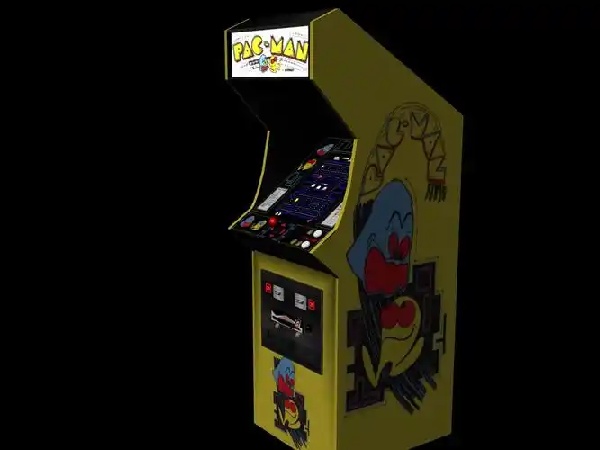
22. Space Invaders
Space Invaders has players control a cannon to shoot advancing alien lines. As stages progress, enemy speed increases, testing reaction and patience. It is both an early‑era shooter and a key driver of the original arcade boom.
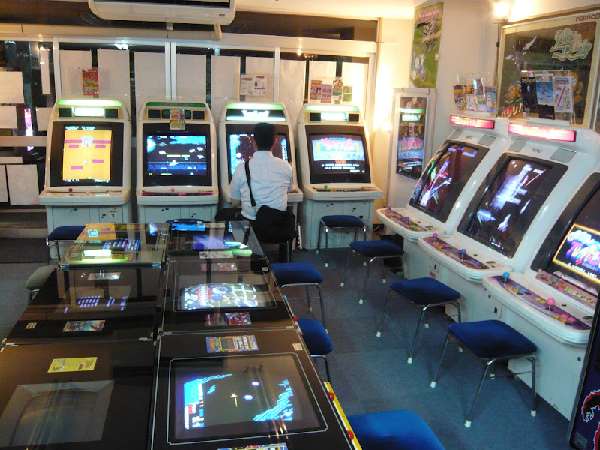
23. Pinball Machines
Pinball uses flippers to keep a steel ball bouncing and colliding across targets and scoring zones. The mechanical feel and playful randomness still shine today, keeping pinball popular in bars, arcades, and retro entertainment spaces.
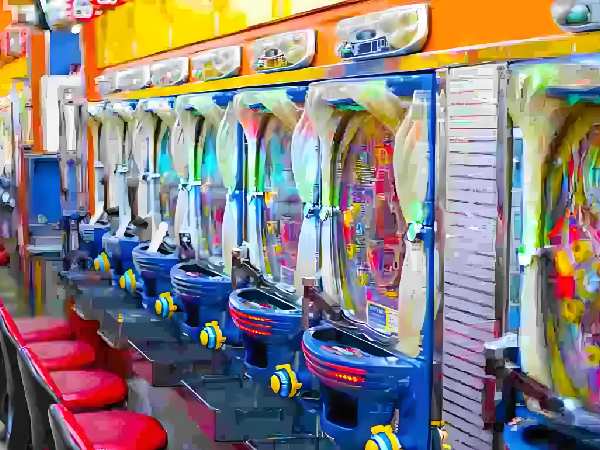
24. Galaga
Galaga places your fighter at the bottom of the screen to repel wave after wave of enemies. With simple inputs, tight pacing, and evolving patterns, it is a highly replayable early shooter alongside Space Invaders.
Note: Many of the above machines can be configured for two‑player or multiplayer modes. Although the rules stay the same, social interaction rises sharply. The stronger sense of group participation not only makes the experience more fun but also draws larger crowds, which raises venue popularity and revenue—one key reason such configurations are core to arcades and entertainment centers.
Conclusion
This guide has organized seven gameplay categories and 24 representative arcade machines to help you build a clear, structured view of the arcade landscape. While it only covers part of a vast and evolving industry, it gives you a practical framework for assessing investment opportunities. For investors and operators, the key is not remembering every title, but rather aligning machine choices with your venue, audience, and revenue goals. The right mix can maximize foot traffic, extend player engagement, and strengthen long-term profitability.
With 16 years of experience in design, manufacturing, and wholesale, GM-Arcade offers a complete range of arcade machines along with customized solutions. Whether you need claw machines, air hockey, boxing machines, or basketball arcade machines, we can help you quickly identify the right portfolio—minimizing risk and maximizing ROI for your business.
